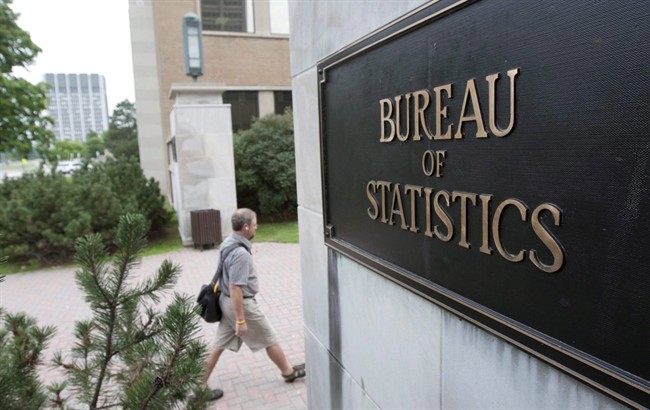OTTAWA – The pace of inflation picked up in January as the consumer price index rose 1.5 per cent compared with a year ago, driven higher mostly by increases in electricity and gasoline prices.

Statistics Canada said Friday the gain compared with a uptick of 1.2 per cent in December, while the Bank of Canada’s core index, which excludes some of the most volatile items, was up 1.4 per cent for January after posting a gain of 1.3 per cent in December.
Economists had expected a gain of 1.3 per cent for both the consumer price index and the central bank’s core index, according to Thomson Reuters.
READ MORE: Loblaw warns lower loonie lifting grocery prices
Seven of the eight major components of the consumer price index were up from a year ago. In addition to higher shelter costs which increased 2.1 per cent compared with a year ago, a 2.0 per cent increase in transportation costs and a 1.1 per cent increase in food prices contributed the most to the rise.
Excluding food and energy prices, the consumer price index was up 1.2 per cent compared with a year ago.
The Bank of Canada has raised concerns that persistent low inflation may be a sign of weakness in the economy. The central bank has forecast that inflation will likely reach the two per cent mark in about two years.
Contributing to the higher shelter costs for January were an increase in electricity prices which were up 4.7 per cent compared with a year ago, while rents climbed 1.6 per cent and home and mortgage insurance costs rose 5.4 per cent. Mortgage interest costs decreased 0.6 per cent on a year-over-year basis, the smallest decline since May 2012.
READ MORE: BoC still trying to figure out low inflation
Contributing to the higher transportation costs was a 4.6 per cent rise in gasoline prices. Food prices climbed 1.1 per cent with prices for food from stores up 1.0 per cent and food in restaurants up 1.3 per cent.
The health and personal care index the only major component to post a decline as it dropped 0.2 per cent compared with a year ago.
By province, the pace of inflation picked up in six provinces compared with December led by an increase of 2.7 per cent in Alberta compared with a 2.1 per cent gain in December. Inflation slowed in New Brunswick to 1.6 per cent compared with 1.9 per cent in December.
B.C. saw no year-over-change in the consumer price index for the second consecutive month.
On a month-over-month basis, the consumer price index increased 0.3 in January from December before seasonal adjustments, but increased 0.2 per cent from December with seasonal adjustments.



Comments